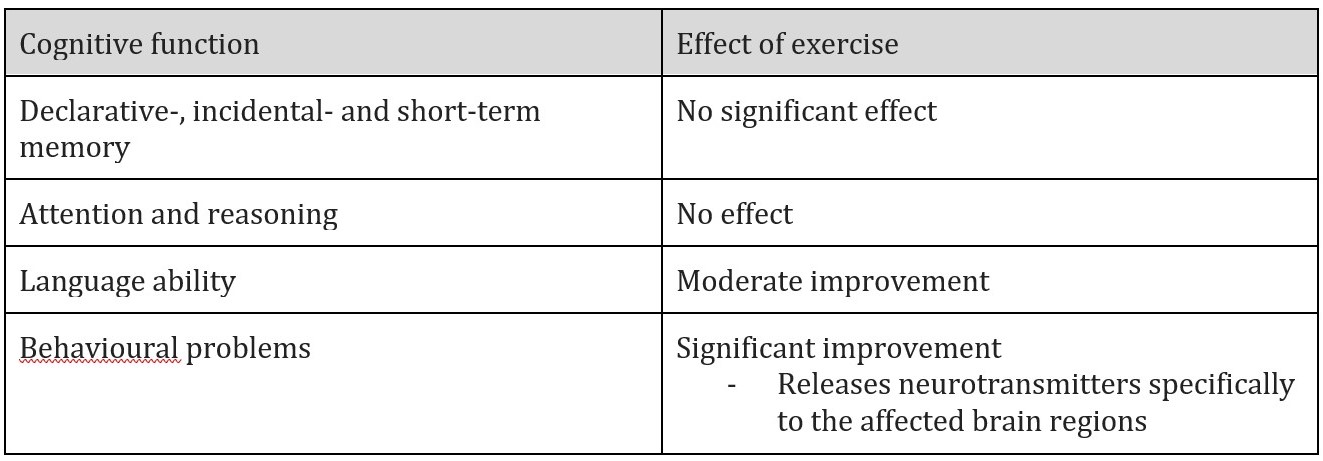We recently finished another round of the increasingly popular Physiopedia Volunteer Orientation Course. As part of the final assignment members were tasked to write an original piece of work to share with the profession, the contributions were of the highest quality. Below is the great piece of work written by Eugenie Lamprecht.
The global prevalence rate of individuals suffering from dementia is expected to rise to 115 million by 2050. Behavioural – and cognitive problems are highly associated with one another and can lead to increased dependence and caregiver burden as well as a decline in physical functioning in individuals with dementia. Reviews on literature studying the effect of physical exercise on behavioural problems are limited. This systematic review aimed to identify the most beneficial type of exercise, as well as the effect of exercise on; different severity levels of cognitive impairments and specific cognitive functions, among individuals with dementia.
46 randomised trials were included in this review, with a total of 5099 participants. However, nine papers were excluded due to limited information. The age ranged from 68 to 86 years and severity varied from mild-cognitive impairment to severe dementia.
The overall results of this review indicated that exercise seems to improve cognitive functioning in isolated areas of the brain, in contrast to previous reviews which indicated a global improvement.
The following table indicates the effect of exercise on different cognitive functions;

The review also indicates that exercise decelerates cognitive decline but doesn’t necessarily enhance cognitive function. Moderate to high-intensity aerobic exercise under supervision, for at least 24 hours of total training time, seems to have the most noticeable effect on cognitive functions.
Although this is the first systematic review assessing the effect of exercise on specific cognitive functions, further research is required to assess the effect of exercise on different types of dementia, as well as more severe stages of dementia. Another area of investigation might be the lasting effect of exercise after discontinuing.
This systematic review is clinically relevant to physiotherapists because it indicates that even individuals with more severe cognitive impairments can benefit from exercise. Therefore, it is our responsibility as healthcare professionals to educate patients and caregivers as well as create exercise programs/ classes for these individuals. Although exercise might not enhance cognitive function, it does effectively decelerate the decline in cognitive function. It is, however highly recommended to conduct these exercise sessions under supervision.